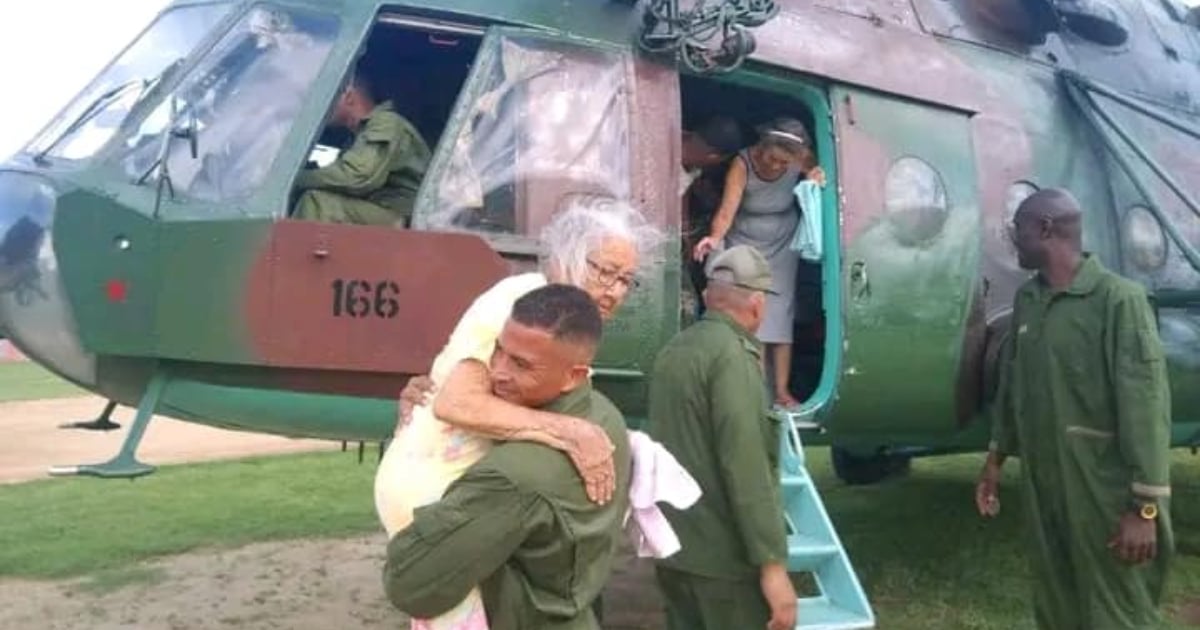Following the devastation caused by Hurricane Oscar, 17 patients who required urgent medical attention were airlifted from Imías to hospitals in other cities within Guantánamo. According to official media reports, these patients are now in stable condition, with some already discharged and back home.
The patients were transported by helicopter to the provincial hospital in Guantánamo and another in Baracoa. This operation was carried out by the Imías health system, which was significantly impacted by the tropical cyclone, along with the support of the Cuban Armed Forces (FAR), as reported by the newspaper Venceremos.
The group included a variety of critical cases: pregnant women at full term, four infants, individuals suffering from cerebrovascular diseases, a patient with a myocardial infarction, and others with decompensated heart conditions. One of the evacuees was trapped in the remote mountain community of Yacabo Arriba, inaccessible by land, necessitating helicopter intervention for her rescue.
Military and Medical Efforts in the Aftermath
In the wake of Hurricane Oscar, military personnel and medical teams have been actively involved in rescuing and airlifting critically ill patients, including children, pregnant women, and other vulnerable individuals from isolated areas in Guantánamo.
According to state media, unprecedented flooding has led to the rescue of thousands of people, leaving several towns completely cut off in the municipalities of Imías, San Antonio del Sur, and Baracoa.
Continued Search and Rescue Operations
Rescue operations have persisted throughout the week, with efforts focused on locating missing families after landslides and the overflow of rivers and reservoirs in Imías and San Antonio del Sur, as reported by local residents.
A week after Hurricane Oscar struck Guantánamo, the government has confirmed the deaths of seven individuals—six from San Antonio del Sur and one from Imías. However, testimonies from those affected challenge the official statistics, suggesting a more dire situation with fatalities and disappearances far exceeding the numbers released by authorities.
Transportation and Aid Distribution Resumed
As of Saturday, vehicular traffic between the provincial capital and the municipality of Imías, which suffered severe damage from the storm, has been restored. This development will aid in the distribution of food and essential donations to facilitate the municipality's recovery, as announced by the Minister of Transportation, Eduardo Rodríguez Dávila, on social media.
Previously, all transport had to take the Moa-Baracoa route, resulting in travel times exceeding seven hours and high fuel consumption. In recent days, the military also conducted aerial operations to deliver food supplies to Imías.
